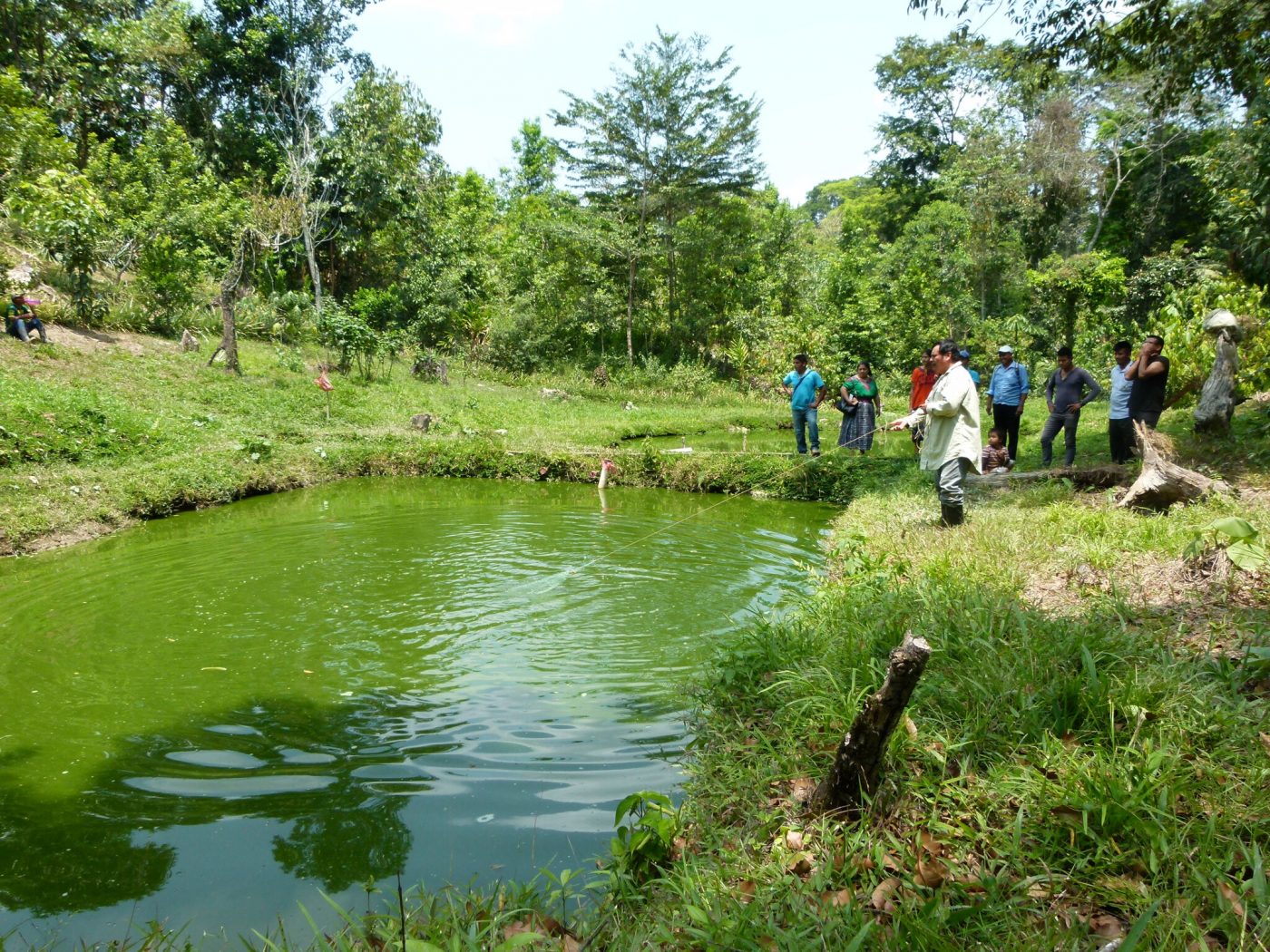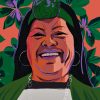A blog from Guatemala by Delfina Mux Caná*
As a child, I remember accompanying my grandmother to the mountains, forests, rivers, and valleys, before entering she would ask for their permission and she would talk to the trees…
As my grandmother’s memories come to mind, I think about all the crises and natural disasters that we are experiencing on the planet. I think how we need to stop and rethink the world’s development models, the concepts of states and “rights”, land governance system and recover both individual and collective values that have been lost. We need urgent and fundamental changes, both at the individual and community level. The earth cannot wait any longer.
Up until recently, universal human rights have historically prevailed in the world and have been very important for the development of humanity – although the rights of women and Indigenous Peoples, among other rights, continue to be a challenge for society. The rights of nature – in other words rejecting the idea that nature is human property and legally recognizing its right to exist, thrive and evolve – is just beginning to be placed on the agendas of state – a change that is coming about as a result of the demands for collective rights of Indigenous Peoples. This change represents light on the horizon.
I think that human rights are based on the prevalence of “western” philosophy over others, including the philosophy of Indigenous Peoples. While human rights are fundamental, the rights of nature are fundamental too, before we, human beings, end up destroying the planet.
Land rights and the rights of nature are two important and inter-connected issues that are key to the problems that many of our countries are experiencing. In Guatemala,for example, the lands of Indigenous Peoples are increasingly threatened by the expansion of monocultures, forcing communities to sell their lands which, as reported in this hearing of the Inter-American Commission on Human Rights is “sometimes through coercion, deception or the concept of buying and selling, and it is almost always against the will of women, ‘co-owners’ of the land[1]” which is why it is urgent to ensure the land rights of Indigenous Peoples.
As Indigenous Peoples we cannot talk about food security without the central element that land represents for us.
In that sense, we can ask ourselves, do land rights and rights of nature complement each other? Do these rights articulate or interact? For some, surely access to land has to do with a human rights obligation and is a central part of social policy. However, for others, land is a natural asset, and it is also the space where life, collective rights, and traditional collective knowledge is developed.
For example, in Guatemala, there are community forests (Totonicapán, Alta Verapaz, and Baja Verapaz, among others), which have historically been protected by Indigenous Peoples’ communities and are strongly linked to community life and the sustainability of biodiversity. In contrast, other areas of the country that, in spite of investment coming from the state, do not show substantial progress in the protection of biodiversity, but rather represent spaces of dispute for a diverse actors. For this reason, specific legal norms for the recognition and protection of communal property – such as the community forests – are urgently needed. The Constitutional Court has been emphatic in this regard.
As a child, I remember that when I accompanied my grandmother to the mountains, forests, rivers and valleys, before entering she would request permission, burn incense, and talk to nature. Perhaps, because of the process of “colonization” or the interiorization of the “oppressor”, as Franz Fanon would call it, I found myself questioning what was the point of doing that? How did she know that nature understood her? In what language did she speak to the trees? And she didn’t just speak to the plants, but also to the animals.
Now I understand perfectly! To be in harmony with Mother Nature, the sun, the air and the water is an urgent and necessary action we all need to take before it is too late. Today I know that the promotion and protection of land rights and rights of nature cannot be postponed and that we need to listen to the values and the teachings of our grandmothers and grandfathers on the spiritual relationship with the earth.
Some of these learnings that are strong in me and influence my way of seeing the world are:
- a) Rivers, lakes, and the earth itself are subjects of rights and as such, they must be respected.
- b) We are the daughters and sons of the earth and therefore the land cannot be sold, nor bought. It must be conserved from generation to generation.
- c) The course of the rivers and lakes must be respected, even if they decide to stop running through these places for many years, sooner or later, they will return to their natural course.
- d) By destroying nature – the life of people, of communities, is destroyed too, everyone’s life is destroyed. The care and protection of the forests is urgent and cannot be postponed, otherwise we will not have water, nor a place to live.
My grandmother was right, the earth must be respected and permission needs to be asked.. before it is too late.
“And my mother said: Mother Earth never forgets.”
Humberto Ak’abal (Mayan K’iche Poet)
* Delfina Mux Caná is the coordinator of the Indigenous Peoples Program with Oxfam in Guatemala
[1] Report on the Human Rights Situation of Indigenous Peoples in the Context of Oil Palm Agribusiness Activities in Guatemala 2015. Thematic Hearing. IACHR. (in Spanish: Informe Situación de Derechos Humanos de los Pueblos Indígenas en el contexto de las Actividades de Agroindustria de Palma Aceitera en Guatemala. 2015. Audiencia Temática. CIDH.)
l



